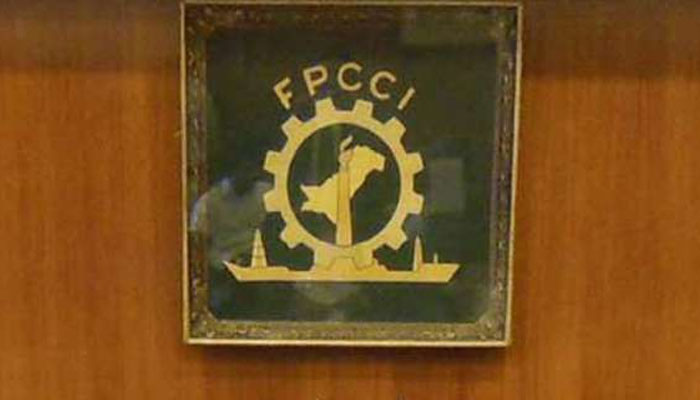FPCCI for accord implementation to promote intraregional trade
KARACHI: The Federation of Pakistan Chambers of Commerce and Industry (FPCCI) on Thursday called for early implementation of trade agreement among the Economic Cooperation Organization (ECO) member countries to improve intraregional trade and investments.
“Intra ECO tariff- and non-tariff issues are hampering the trade and investment opportunities in the region,” Anjum Nisar, president of FPCCI said, addressing the 28th executive committee and general assembly meetings of ECO Chamber of Commerce and Industry (CC) through a video link.
Nisar called upon the ECO member countries for implementation of transit trade agreement, agreement on protection and promotion of investment, ECO visa and white card scheme and TIR conventions – a treaty to simplify administrative issues in international transport of goods – for development of border trade, knowledge sharing and transfer of technology.
During the meeting, the presidency of ECO-CCI was handed over to Iran Chamber of Commerce, Industry, Mines and Agriculture and vice presidency to Azerbaijan Chamber of Commerce and Industry.
Amjad Rafi, chairman of National Committee of ECO-CCI (Pakistan Chapter) also emphasised early implementation of ECO trade agreement, which was signed in 2008 and issuance of visa stickers to bonafide businessmen for easy travel as in the case of South Asian businesses.
Gholam Hussein Shafeiee, vice president of ECO-CCI underscored the need to increase cooperation in health, tourism, education, petro chemical, gas and energy sector.
Shafeiee said lack of bilateral preferential trade agreements among the member states as well as non-implementation of the ECO trade agreement are of the major reasons for the low intra ECO trade.
Azarakhsh Haifizi, president of ECO-CCI urged barter and cross-border trade relations among the countries.
Haifizi said there is a need of developing unity, integration, trade harmonisation, movement of investment, business relations, facilitation of capital movement and exchange of business delegation among member countries for enhancing trade and other ties.
Hadi Soleimanpur, secretary general of ECO secretariat also updated the participants about the measures taken at government levels for the promotion of bilateral relations. He suggested for creation a task force at the ECO-CCI level for analysing the trade opportunities, production
gap, supply chain issues and trade facilitation.
Rifat Hisarciklioglu, president of a Turkish trade body said trade has been a major driver of the economic development and private sector has always assumed leading role in boosting economic activities in national, regional and global economies.
He urged for developing significant trade and investment ties, liberalisation of movement of goods and services, technological transfers and development of mechanism for dispute resolution among ECO member countries. “ECO countries possess one-third of world natural resources, which need to be utilised for economic prosperity and joint ventures.”
-
 Breaking: 2 Dead Several Injured In South Carolina State University Shooting
Breaking: 2 Dead Several Injured In South Carolina State University Shooting -
 China Debuts World’s First AI-powered Earth Observation Satellite For Smart Cities
China Debuts World’s First AI-powered Earth Observation Satellite For Smart Cities -
 Royal Family Desperate To Push Andrew As Far Away As Possible: Expert
Royal Family Desperate To Push Andrew As Far Away As Possible: Expert -
 Cruz Beckham Releases New Romantic Track 'For Your Love'
Cruz Beckham Releases New Romantic Track 'For Your Love' -
 5 Celebrities You Didn't Know Have Experienced Depression
5 Celebrities You Didn't Know Have Experienced Depression -
 Trump Considers Scaling Back Trade Levies On Steel, Aluminium In Response To Rising Costs
Trump Considers Scaling Back Trade Levies On Steel, Aluminium In Response To Rising Costs -
 Claude AI Shutdown Simulation Sparks Fresh AI Safety Concerns
Claude AI Shutdown Simulation Sparks Fresh AI Safety Concerns -
 King Charles Vows Not To Let Andrew Scandal Overshadow His Special Project
King Charles Vows Not To Let Andrew Scandal Overshadow His Special Project -
 Spotify Says Its Best Engineers No Longer Write Code As AI Takes Over
Spotify Says Its Best Engineers No Longer Write Code As AI Takes Over -
 Michelle Yeoh Addresses 'Wicked For Good' Snub At 2026 Oscars
Michelle Yeoh Addresses 'Wicked For Good' Snub At 2026 Oscars -
 Trump Revokes Legal Basis For US Climate Regulation, Curb Vehicle Emission Standards
Trump Revokes Legal Basis For US Climate Regulation, Curb Vehicle Emission Standards -
 DOJ Blocks Trump Administration From Cutting $600M In Public Health Funds
DOJ Blocks Trump Administration From Cutting $600M In Public Health Funds -
 2026 Winter Olympics Men Figure Skating: Malinin Eyes Quadruple Axel, After Banned Backflip
2026 Winter Olympics Men Figure Skating: Malinin Eyes Quadruple Axel, After Banned Backflip -
 Meghan Markle Rallies Behind Brooklyn Beckham Amid Explosive Family Drama
Meghan Markle Rallies Behind Brooklyn Beckham Amid Explosive Family Drama -
 Scientists Find Strange Solar System That Breaks Planet Formation Rules
Scientists Find Strange Solar System That Breaks Planet Formation Rules -
 Backstreet Boys Voice Desire To Headline 2027's Super Bowl Halftime Show
Backstreet Boys Voice Desire To Headline 2027's Super Bowl Halftime Show




